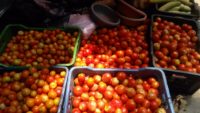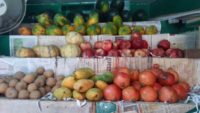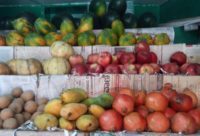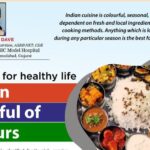How safe are the vegetables, fruits we eat? Over 50 per cent of food products are contaminated with pesticides residue. Most of the pesticides are lethal poisons which cause cancer, fertility problems, brain tumors, childhood leukemia, birth defects etc…
How safe are the vegetables and fruits available today? Not very, it would seem. It is estimated that over 50 per cent of Indian food products are contaminated with pesticides residue. And a substantial percentage of these contain residues above the tolerance levels.
Indian women have been found to have unacceptable amounts of pesticide residues in their breast milk. Even the new born is not spared from day one. The WHO estimates that two million people get poisoned by pesticides annually.




It is difficult to identify the source of contamination. However, some simple processes such as washing in running water, peeling, boiling and cooking will ensure that food is free from pesticides to a large extent.
Milk
A study by the Indian Council of Medical Research (ICMR) on milk samples from cows and buffaloes came out with shocking results: 85 per cent of the samples had pesticide levels above the acceptable level. As cows and buffaloes chew on agriculture waste, they end up consuming pesticide residues. Another ICMR study found large amounts of pesticide residues in fruits, vegetables, pulses, grains, wheat flour, eggs, meat, fish, poultry and milk. Children are more vulnerable to the effects of pesticide exposure because their internal organs are still developing and maturing. Pesticides attack the human immune system at different points. It could result in numerous life threatening diseases like cancer, respiratory ailments, skin diseases, kidney failure, impotence and ulcers. However, the government does not think it necessary to ban dangerous pesticides that are today banned in most parts of the world. Apart from this many pesticides banned in India are still used illegally to reap good harvest.
Leaving chemicals off your plate


Organic farming
Of late, public and decision-making authorities have been promoting organic farming to reduce hazardous of pesticides. However, organic food is admittedly more expensive and government has to take more steps to promote organic farming which is the need of the hour.


Dr. Manjushri
Poornaayu Clinic, Tadambail,
Suratkal, D K District -575025
Mob – 9482249762











